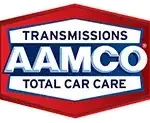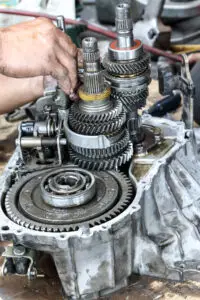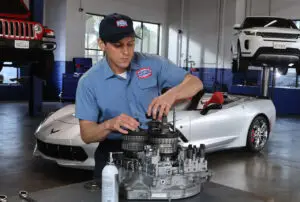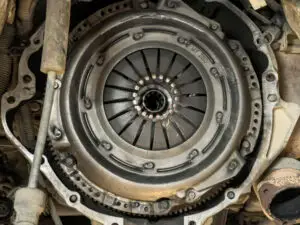When transmission repair comes knocking, you might wonder what you could’ve done to prevent it — and now that you’re faced with a potentially costly repair, what should you expect? You’re not alone in wondering. There are many common questions about transmission repair that mechanics hear all the time. We’re here to share answers so you can make the right choices for your vehicle and feel more confident going into any transmission service.
How to Keep Your Transmission Healthy
Once you’ve dealt with major transmission repairs, you’ll likely wonder what you can do to prevent them in the future. While not all repairs can be avoided, many of the most common problems can be prevented with just a couple of key steps.
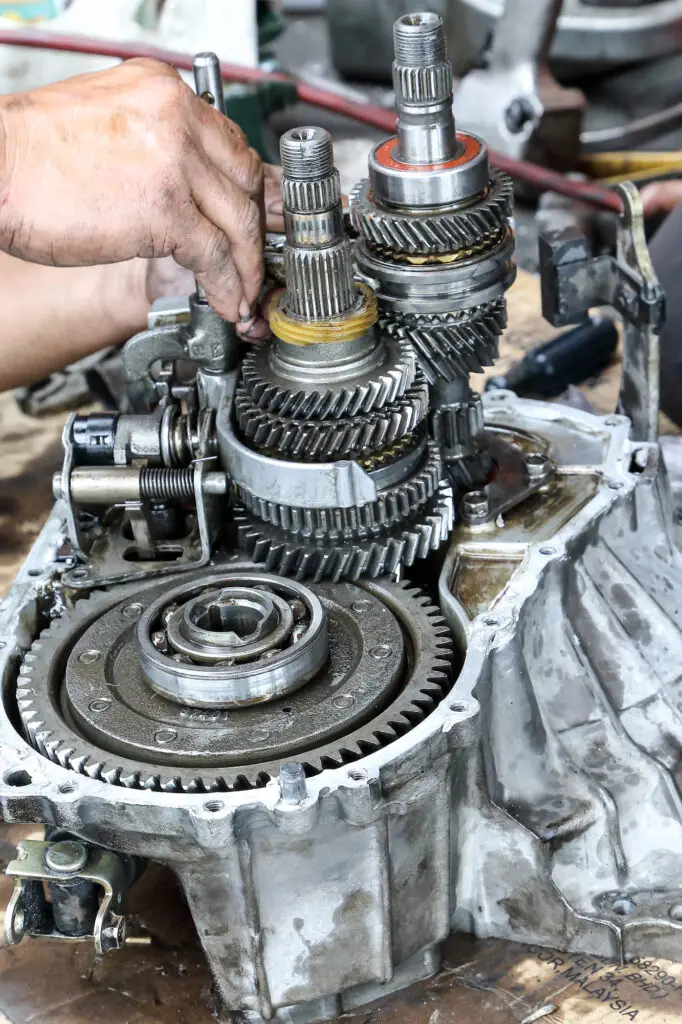
Q: What Maintenance Does a Transmission Need?
Each system in your vehicle relies on regular maintenance services. Depending on your vehicle, your engine may need an oil change once or twice a year. Brake pads and rotors need to be replaced when worn. And transmission fluid must be replaced at regular intervals. Depending on your vehicle, driving habits, and the type of transmission, you may be able to go as long as 100,000 miles before needing to replace the transmission fluid — or it may be necessary after 30,000 miles or less. Many of the most common problems related to transmissions involve low or dirty fluid, so these can easily be kept at bay.
Q: How Can I Help Prevent Major Transmission Repairs?
Preventing transmission problems isn’t just about regular maintenance. Your driving habits and staying proactive whenever there are signs of an issue will help keep repairs to a minimum. Each time you drive, avoid aggressive acceleration, don’t shift between Drive and Reverse while your car is moving, and only tow loads within a safe weight range. As soon as you notice any change in how your car shifts gears or accelerates, head to a mechanic for diagnostics.
What to Expect During a Transmission Service
You’re headed to an auto shop for transmission repairs — what should you expect? These can be costly repairs, so it’s fair to wonder exactly what goes on while your vehicle is in their hands and what sort of warranties or payments you may drive away with.
Q: How are Diagnostics Handled?
The first thing your mechanic will do when you drop your vehicle off for any transmission repair is a diagnostic test. This includes a thorough visual inspection, which can catch signs of damage or a leak in the system. They may do a road test to observe symptoms that may arise while driving your car. Your mechanic will also use high-tech tools to get a more complete understanding of what’s happening inside the transmission and other essential systems. Modern vehicles rely increasingly on computers, sensors, and other electronic components that can be difficult to assess just by looking or observing symptoms. If you are in the Chicagoland area, you can schedule a free Multi-Point inspection.
Q: What’s the Difference Between a Transmission Rebuild or Replacement?
Unless your vehicle only needs a simple transmission service or repair, it’s likely your mechanic will recommend either a rebuild or replacement. Each comes with its own set of pros and cons, so the correct repair service for your vehicle will depend on your unique situation. During a transmission rebuild, your mechanic will remove and fully disassemble the transmission. An in-depth inspection of each component will be done, any damaged or worn parts replaced, and then the transmission will be reinstalled in your vehicle. This requires an expert mechanic who understands the ins and outs of how your transmission operates. On the other hand, a transmission replacement involves removing the current system and installing a remanufactured one in your vehicle, restoring it to “like-new” condition.
Q: Which Repairs Need to Be Done Right Away — and Which Can Wait?
In the best-case scenario, you’re able to do all recommended services and repairs right away — but it doesn’t always work out that way. Whether you’re on a budget or have time constraints, sometimes you need to be able to prioritize certain repairs and plan to come back later for the rest. Though the exact answer to this question is situational, you should be able to have an open conversation with your mechanic to go over your options. Urgent repairs will have to be done immediately, but it’s possible smaller repairs can be done later.
Q: What Warranties are Offered on Transmission Repairs?
Always ask about warranties on parts and labor when scheduling a major repair. This helps assure you that you’re covered if problems arise later due to a manufacturer defect or part failure. It’s also a vote of confidence in the parts used and mechanics working on your vehicle. When possible, look for a nationwide warranty like AAMCO’s, which means you’re covered no matter where in America you’re located when things go wrong.
Q: Is There a Financing Option to Help Pay for Repairs?
Let’s face it, transmission repairs especially can be expensive — and your budget may not always easily cover those costs. Once it’s clear you’re due for a transmission repair, ask about financing options that can help spread out payments over time, making it more reasonable to pay off. At AAMCO, qualifying customers can take advantage of interest-free financing on costlier services like transmission repairs.
Still Curious? Ask the Experts at Your Local AAMCO in Chicagoland
Whether you still have questions or are ready to go, the transmission experts at your local AAMCO are here to help. With years of experience under our belts working on transmissions of all types, we’ve seen it all. No matter what issues you’re dealing with, we’ll help get you safely and confidently back on the road again. Schedule your appointment with us today!
